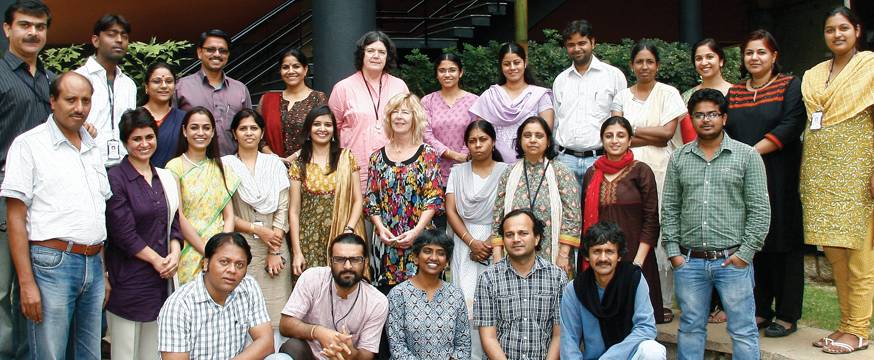
Assessment: Building expertise in India
Research 17 Sep 2012 5 minute readAssessment: Building expertise in India
International assessments like the Programme for International Student Assessment and the Trends in International Mathematics and Science Study make the headlines. So do national assessments like the National Achievement Survey in India, the National Assessment Program – Literacy and Numeracy in Australia and the National Assessment of Educational Progress in the United States.
The focus in international and national assessments is on enabling system monitoring and improvement over time, but how might educators best go about developing assessments that help improve teaching and learning at a more local level? That’s a question being asked by staff at the Azim Premji Foundation (APF), a not-for-profit organisation working with teachers and educational leaders to achieve quality universal education in India. The answer? By building capacity in the area of testing and test development for assessing students and teachers.
That’s what ACER and the APF have been doing since 2008 through collaborative programs and initiatives. ACER and the APF share the same goal: to apply international best practices in educational research and development to support school improvement and learning outcomes.
Following up on a workshop by ACER Senior Research Fellow Ms Prue Anderson and a visit by APF staff to ACER in Melbourne, Principal Research Fellow Dr Annie Brown and Research Fellow Ms Helen Lye from ACER’s Assessment and Reporting research programs in the last year have been working in Bangalore with staff from the APF’s Institute for Assessment and Accreditation and APF field officers. The focus of their work is on developing and analysing student assessments across a range of subjects as part of an ongoing program to support the APF’s assessment work. Dr Brown and Ms Lye’s work has included a 10-day workshop for 30 field officers and staff from the Institute for Assessment and Accreditation.
‘The aim of our 10-day workshop was capacity building in the area of testing and tool development for assessing students and teachers,’ explains Dr Brown. ‘The objective of the workshop was to equip participants to design standardised tools for student and teacher assessments.’
Workshopping assessment in Bangalore
ACER’s workshop with APF staff addressed basic assessment concepts like validity and reliability; interpreting test scores; norm-referenced and criterion-referenced tests; the development of assessment frameworks and blueprints; item writing, item facility, item discrimination and distractor analysis; developing stimulus materials, open-ended questions and scoring criteria, essay prompts, assessment rubrics, marker training and moderation; and the rationale for and process of panelling. This was followed by sessions with a focus on literacy, numeracy and science assessment.
All the participants were subject specialists in one of the primary school subjects, or in teacher education. Those in the teacher education field were in the process of developing a teacher competency framework on which they intended to develop an assessment, for use with teacher trainees undertaking education in their newly established Azim Premji University. The university, which was formally opened while the workshops were underway, specialises exclusively in teacher education.
‘We designed the workshop to lead into a small-scale test development project,’ said Dr Brown. ‘The participants worked in subject groups to develop a test construct and blueprint, followed by test items for the subject area they were interested in. These were English, science, environmental science, maths, and student responsibility. They then panelled items and produced final versions of the tests. We then piloted them on students in a nearby school and finished off with data entry and item analysis – so we worked through the whole cycle.’
What is the Azim Premji Foundation?
The APF, founded in 2001 by Azim Premji, a business leader and chairman of Indian software giant Wipro, seeks to implement scalable ‘proof of concept’ reforms that can be adopted by education systems. Its focus over the last decade or so has been on primary education, partnering with governments in 13 states across India to pilot initiatives in more than 20 000 schools that have the potential for systemic reform.
Besides school-based initiatives, though, the APF has increasingly turned its attention to initial and ongoing teacher education and professional development for school leaders through the APF Institute for Learning and Development, the Institute for Assessment and Accreditation and the Azim Premji University, founded after passage of the Azim Premji University Act of 2010 in the state of Karnataka.
The Institute for Assessment and Accreditation is a critical component of the APF’s work to spread awareness of, and create demand for, assessment-driven quality improvements in education.
